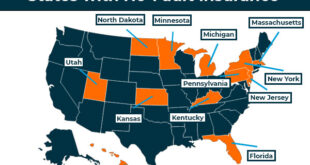Loan Security Waiver: What It Is and Why It Matters In the financial world, securing a loan often requires providing some form of collateral to guarantee repayment. However, in certain cases, borrowers may qualify for a loan security waiver, allowing them to obtain financing without pledging assets. This article dives deep into the concept of loan security waivers, their benefits, eligibility criteria, and how they can be an advantageous option for borrowers.
What Is a Loan Security Waiver?
A loan security waiver is a provision allowing borrowers to secure financing without the need for collateral. This arrangement is commonly seen in personal loans, education loans, and specific business loans where lenders assess a borrower’s creditworthiness and income instead of requiring tangible assets.
How Does a Loan Security Waiver Work?
- Credit Evaluation:
The lender reviews your credit score, income stability, and repayment history to determine your eligibility. - Risk Assessment:
Borrowers with high credit scores or consistent financial records are deemed less risky, qualifying them for a waiver. - Terms Agreement:
Without collateral, interest rates may be slightly higher to compensate for the increased risk to the lender.
Advantages of a Loan Security Waiver
- No Asset Pledging Required:
Borrowers can retain full ownership of their property or other valuable assets. - Faster Loan Processing:
Eliminating the need for collateral verification speeds up the approval process. - Access to Funds for a Broader Audience:
Individuals without significant assets still have access to financing options.
Who Qualifies for a Loan Security Waiver?
Eligibility largely depends on the borrower’s financial standing, credit history, and income stability. Key factors include:
- Excellent Credit Score: A score above 700 significantly increases the chances of approval.
- Stable Employment: Regular income reassures lenders about repayment capability.
- Debt-to-Income Ratio: Keeping this ratio below 40% shows that your finances are well-managed.
Types of Loans Offering Security Waivers
- Personal Loans:
Unsecured personal loans often include a loan security waiver as part of their offering. - Education Loans:
Some institutions waive security requirements for meritorious students or those enrolled in reputable universities. - Business Loans:
Startups and small businesses may qualify if they demonstrate strong revenue projections.
Steps to Apply for a Loan with a Security Waiver
- Evaluate Your Creditworthiness:
Check your credit score and address any discrepancies. - Research Lenders:
Compare lenders offering loans without collateral. - Gather Documentation:
Provide proof of income, employment, and identification. - Submit Your Application:
Fill out the application form accurately and submit all required documents. - Negotiate Terms:
Discuss interest rates and repayment schedules to ensure favorable terms.
Risks and Drawbacks of a Loan Security Waiver
While convenient, loan security waivers have potential downsides, such as:
- Higher Interest Rates: Lenders may offset the absence of collateral by charging higher rates.
- Stricter Approval Requirements: Only borrowers with strong financial profiles may qualify.
- Lower Loan Limits: Lenders may offer smaller loan amounts compared to secured loans.
10 Tips for Securing a Loan Without Collateral
- Maintain an excellent credit score.
- Demonstrate a stable employment history.
- Minimize outstanding debts before applying.
- Choose lenders specializing in unsecured loans.
- Be honest about your financial situation.
- Research and compare multiple lenders.
- Negotiate the interest rate and loan terms.
- Opt for loans tailored to your financial needs.
- Provide a detailed budget to showcase repayment capability.
- Avoid unnecessary applications that could impact your credit score.
10 FAQs About Loan Security Waivers
- What is a loan security waiver?
It’s a provision allowing loans without collateral. - Are all loans eligible for a security waiver?
No, only certain loan types like personal and education loans typically offer this option. - Does a security waiver increase the interest rate?
Yes, unsecured loans often have slightly higher rates. - Can a student apply for a loan security waiver?
Yes, especially if they meet academic and financial criteria. - How do I qualify for a security waiver?
By maintaining a good credit score and stable income. - What documents are required?
Proof of identity, income, and creditworthiness. - Are there alternatives to a security waiver?
You could opt for a co-signer or secured loan. - Can businesses benefit from security waivers?
Yes, especially startups with robust business plans. - Is a loan security waiver available globally?
Policies vary by lender and region. - What happens if I default on an unsecured loan?
It impacts your credit score, and lenders may take legal action.
Conclusion
A loan security waiver offers a lifeline to borrowers who lack significant assets but need financial assistance. This option, while potentially more expensive, opens doors for students, small businesses, and individuals seeking quick and accessible financing. Understanding the nuances of loan security waivers is crucial to making informed decisions.
Whether you’re a student pursuing higher education or a professional needing a personal loan, exploring loans with security waivers could be a game-changer. Assess your financial situation, research options, and approach lenders with confidence to secure the best possible terms.
 Gerbang Finance
Gerbang Finance

